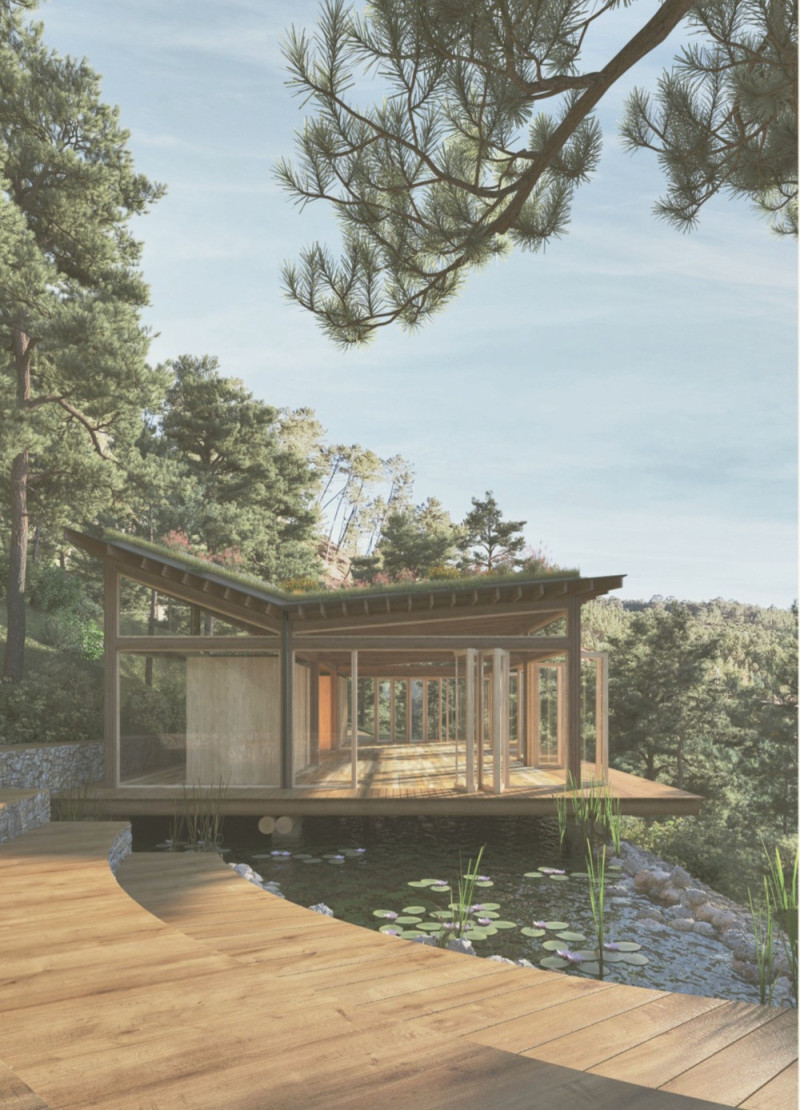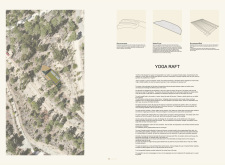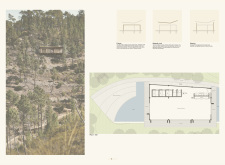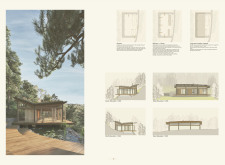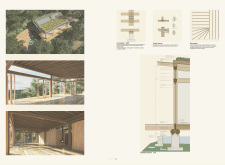5 key facts about this project
The primary function of the Yoga Raft is to serve as a retreat where individuals can practice yoga, meditation, and other wellness activities. The design encourages movement and flow, mirroring the principles of yoga itself. The building consists of open, flexible spaces that can accommodate a range of activities, allowing for the adaptation of areas depending on class size or type. This adaptability is a key element of the design, reflecting a contemporary approach that prioritizes user needs and promotes dynamic interactions.
The architectural elements of the Yoga Raft are carefully considered and executed. Constructed predominantly from sustainably sourced timber, the building maintains a natural aesthetic while also offering structural integrity. The warm tones of the wood create an inviting atmosphere that fosters relaxation and connection to nature. In combination with recycled materials used throughout the structure, the design speaks to a broader commitment to sustainability within contemporary architecture. The incorporation of large glazing sections plays a vital role in blurring the line between indoor and outdoor spaces, allowing natural light to flood the interior while providing unobstructed views of the surrounding landscapes.
A unique design aspect of the Yoga Raft is its butterfly roof, which slopes upward to create a dynamic silhouette. This feature not only adds visual interest but also serves functional purposes, such as facilitating rainwater runoff and enhancing natural ventilation. The green roof further integrates the structure into its environment, supporting both biodiversity and thermal insulation. The outdoor spaces connected to the building result in a seamless flow that encourages users to engage with nature actively, whether through tranquil meditation by the water feature or shared moments on the terraces.
Careful attention has been paid to the landscape surrounding the Yoga Raft, enhancing the site’s natural features and existing flora. Paths and terraces are laid out to encourage exploration and connection with the environment, reinforcing the idea that the architecture is an extension of the natural world. The design promotes outdoor engagement, which is a vital part of the overall wellbeing philosophy embedded in the project.
In summary, the Yoga Raft stands as an evolved concept of wellness architecture through its unique design approaches and a deep-rooted respect for the environment. Each element has been thoughtfully curated to foster an atmosphere that encourages mindfulness, health, and community interaction. This project exemplifies how architecture can play a vital role in promoting well-being and sustainability, merging aesthetic appeal with functional purpose.
For those interested in gaining a deeper understanding of this architectural endeavor, exploring the architectural plans, architectural sections, and architectural designs further will provide invaluable insights into the project's innovative ideas and execution. The interplay between design elements and the surrounding landscape underscores the project's commitment to creating a sanctuary for mindfulness and wellness.


